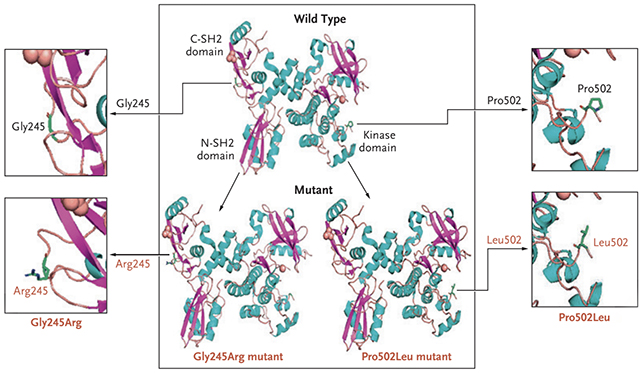A common type of human papillomavirus (HPV) could be more dangerous than we thought. The virus, known as beta-HPV, was thought in rare cases to contribute to skin cancer by worsening UV damage, but a new study suggests it can actually hijack the body's cells to directly drive cancer growth.
These fresh conclusions came from a study of a 34-year-old woman who sought medical help for cutaneous squamous cell carcinoma (cSCC) on her forehead. Her tumors were repeatedly growing back, even after immunotherapy and surgeries.
Related: Modified Herpes Virus Found to Shrink Deadly Skin Cancers in Clinical Trial
A closer genetic analysis revealed something surprising: the beta-HPV had actually integrated itself into the DNA of the woman's tumor, where it was producing viral proteins that helped the cancer thrive.
Before now, beta-HPV had never been found to integrate into cellular DNA, let alone actively maintain a cancer.
"It suggests that there may be more people out there with aggressive forms of cSCC who have an underlying immune defect and could benefit from treatments targeting the immune system," says immunologist Andrea Lisco from the US National Institute of Allergy and Infectious Diseases (NIAID).
The woman who was the subject of this study had an inherited immune disorder, one which prevented her T cells from attacking HPV.

While tests revealed that the woman's immune system could still repair DNA damage from UV radiation – the typical cause of cSCC – the impairment of her T cells meant the beta-HPV could invade her skin cells and trigger the formation of cancer.
The immunocompromised woman was also being treated for other HPV-related illnesses, including warts on the skin and in the mouth.
Once the cause of her condition was discovered, the patient received a bone marrow stem cell transplant, to replace her dysfunctional T cells with healthy ones. This cleared up the aggressive skin cancer and her other HPV-caused issues, none of which returned during a three-year follow-up period.
"This discovery and successful outcome would not have been possible without the combined expertise of virologists, immunologists, oncologists and transplant specialists, all working under the same roof," says Lisco.
The study by no means minimizes the role of UV radiation as a cause of skin cancer, but shows that there are other factors at work too. In rare cases like this, normally benign viruses can have devastating effects in people with weakened immune systems.
That emphasizes the need for targeted, personalized cancer treatments that may well be more effective than conventional and generic approaches. It's likely that the woman involved in this study is far from the only one with this set of conditions.
Reason to be hopeful could come from progress against a related disease. Alpha-HPV is known as the cause of many cervical and throat cancers, and widespread vaccination against the virus has resulted in a drastic drop in deaths from those cancers.
While a single, universal cure for cancer remains elusive, we are continuing to see steadily improving survival and recovery rates across many cancer types, including cSCC – something this new research should also help with.
"This discovery could completely change how we think about the development, and consequently the treatment, of cSCC in people who have a health condition that compromises immune function," says Lisco.
The research has been published in The New England Journal of Medicine.
